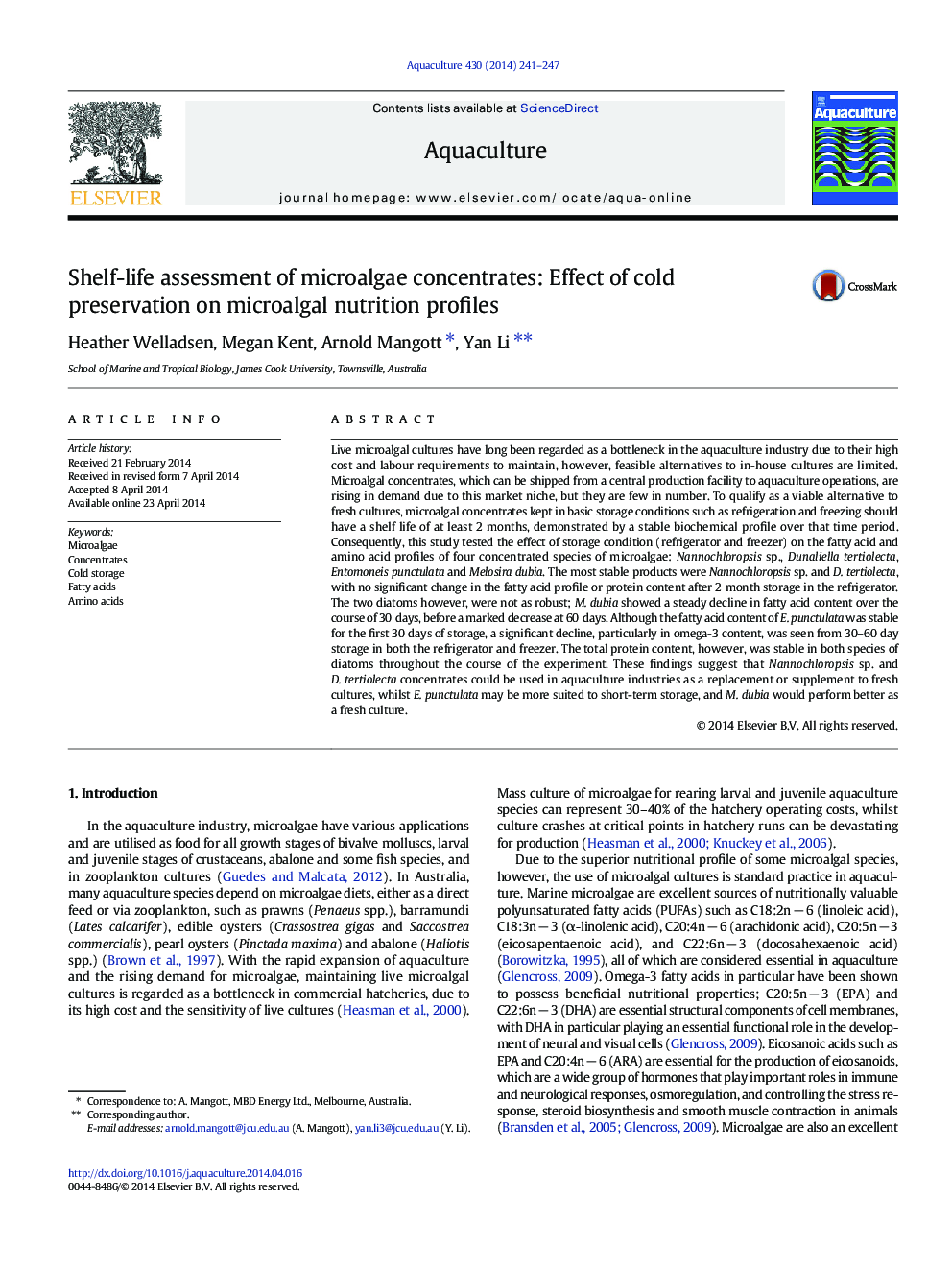| کد مقاله | کد نشریه | سال انتشار | مقاله انگلیسی | نسخه تمام متن |
|---|---|---|---|---|
| 2421838 | 1552857 | 2014 | 7 صفحه PDF | دانلود رایگان |
• Microalgal amino acids and fatty acid retention were reported during cold storage.
• Omega-3 fatty acids were well retained in Nannochloropsis sp. and D. tertiolecta.
• Essential amino acids were well retained in all species tested.
• Results have a profound impact on aquaculture industry.
Live microalgal cultures have long been regarded as a bottleneck in the aquaculture industry due to their high cost and labour requirements to maintain, however, feasible alternatives to in-house cultures are limited. Microalgal concentrates, which can be shipped from a central production facility to aquaculture operations, are rising in demand due to this market niche, but they are few in number. To qualify as a viable alternative to fresh cultures, microalgal concentrates kept in basic storage conditions such as refrigeration and freezing should have a shelf life of at least 2 months, demonstrated by a stable biochemical profile over that time period. Consequently, this study tested the effect of storage condition (refrigerator and freezer) on the fatty acid and amino acid profiles of four concentrated species of microalgae: Nannochloropsis sp., Dunaliella tertiolecta, Entomoneis punctulata and Melosira dubia. The most stable products were Nannochloropsis sp. and D. tertiolecta, with no significant change in the fatty acid profile or protein content after 2 month storage in the refrigerator. The two diatoms however, were not as robust; M. dubia showed a steady decline in fatty acid content over the course of 30 days, before a marked decrease at 60 days. Although the fatty acid content of E. punctulata was stable for the first 30 days of storage, a significant decline, particularly in omega-3 content, was seen from 30–60 day storage in both the refrigerator and freezer. The total protein content, however, was stable in both species of diatoms throughout the course of the experiment. These findings suggest that Nannochloropsis sp. and D. tertiolecta concentrates could be used in aquaculture industries as a replacement or supplement to fresh cultures, whilst E. punctulata may be more suited to short-term storage, and M. dubia would perform better as a fresh culture.
Journal: Aquaculture - Volume 430, 20 June 2014, Pages 241–247
